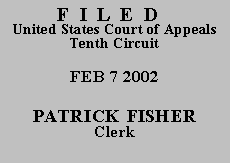

|
CLIFFORD SHEPHERD, |
|
Before HENRY, BRISCOE, and MURPHY, Circuit Judges.
Proceeding pro se, Clifford Shepherd appeals the district court's dismissal of the civil rights complaint he brought pursuant to 42 U.S.C. § 1983. Shepherd's complaint contained an allegation that his incarceration in a privately run correctional facility is a violation of New Mexico law. He further alleged that he was deprived of the rights granted him by that state law without due process. Shepherd also alleged that as a result of defendants' actions, he has no access to a law library or a typewriter. Finally, Shepherd asserted that defendants retaliated against him for filing a § 2241 habeas petition. Shepherd sought monetary damages for these alleged constitutional violations.
The district court concluded that Shepherd had failed to state claims upon which relief may be granted and dismissed his complaint pursuant to 28 U.S.C. § 1915(e)(2)(B) and Fed. R. Civ. P. 12(b)(6). See Am. Mfrs. Mut. Ins. Co. v. Sullivan, 526 U.S. 40, 49-50 (1999) ("To state a claim for relief in an action brought under § 1983, [plaintiffs] must establish that they were deprived of a right secured by the Constitution or laws of the United States, and that the alleged deprivation was committed under color of state law."). A district court may dismiss sua sponte a pro se complaint for failure to state a claim when it is "patently obvious that the plaintiff could not prevail on the facts alleged, and allowing him an opportunity to amend his complaint would be futile." See McKinney v. Okla. Dep't of Human Servs., 925 F.2d 363, 365 (10th Cir. 1991) (quotation and citations omitted).
We have reviewed the record, appellant's brief, and the applicable law and affirm the district court's dismissal of Shepherd's complaint for substantially the reasons stated by the district court with the following amplification. Shepherd claims that New Mexico law creates a liberty interest in the place of his incarceration. See N.M. Stat. Ann. § 31-20-2. We have reviewed the New Mexico statute upon which Shepherd bases his claim and conclude that it does not create the liberty interest he asserts. Accordingly, Shepherd's constitutional due process claim has no merit.
This court AFFIRMS the district court order dismissing Shepherd's complaint. Shepherd's motion to proceed in forma pauperis on appeal is GRANTED. Shepherd, however, is reminded that despite this court's dismissal of his appeal, he remains obligated to continue making partial payments until his appellate filing fee is paid in full. See 28 U.S.C. § 1915(b).
ENTERED FOR THE COURT
Michael R. Murphy
Circuit Judge
*. This order and judgment is not binding precedent, except under the doctrines of law of the case, res judicata and collateral estoppel. The court generally disfavors the citation of orders and judgments; nevertheless, an order and judgment may be cited under the terms and conditions of 10th Cir. R. 36.3.